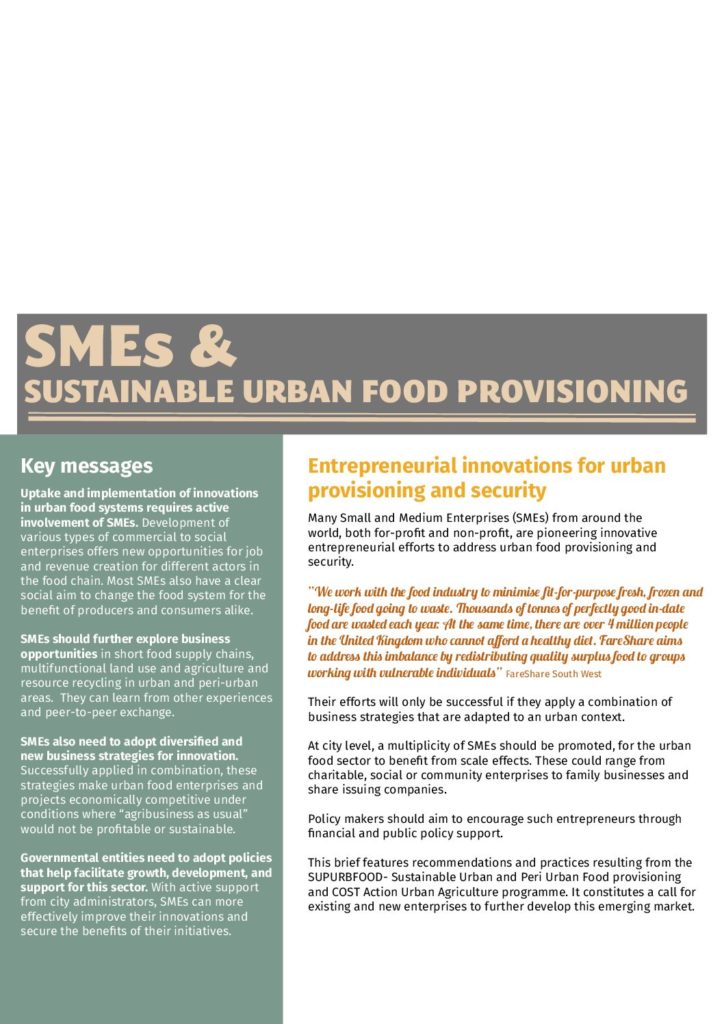This policy brief, elaborated by RUAF, features recommendations and practices resulting from the SUPURBFOOD – Sustainable Urban and Peri Urban Food provisioning programme and COST Action Urban Agriculture. It calls for existing and new enterprises to further develop this emerging market.
Key messages:
- Uptake and implementation of innovations in urban food systems requires active involvement of SMEs. Development of various types of commercial to social enterprises offers new opportunities for job and revenue creation for different actors in the food chain. Most SMEs also have a clear social aim to change the food system for the benefit of producers and consumers alike.
- SMEs should further explore business opportunities in short food supply chains, multifunctional land use and agriculture and resource recycling in urban and peri-urban areas. They can learn from other experiences and peer-to-peer exchange.
- SMEs also need to adopt diversified and new business strategies for innovation. Successfully applied in combination, these strategies make urban food enterprises and projects economically competitive under conditions where “agribusiness as usual” would not be profitable or sustainable.
- Governmental entities need to adopt policies that help facilitate growth, development, and support for this sector. With active support from city administrators, SMEs can more effectively improve their innovations and secure the benefits of their initiatives.

